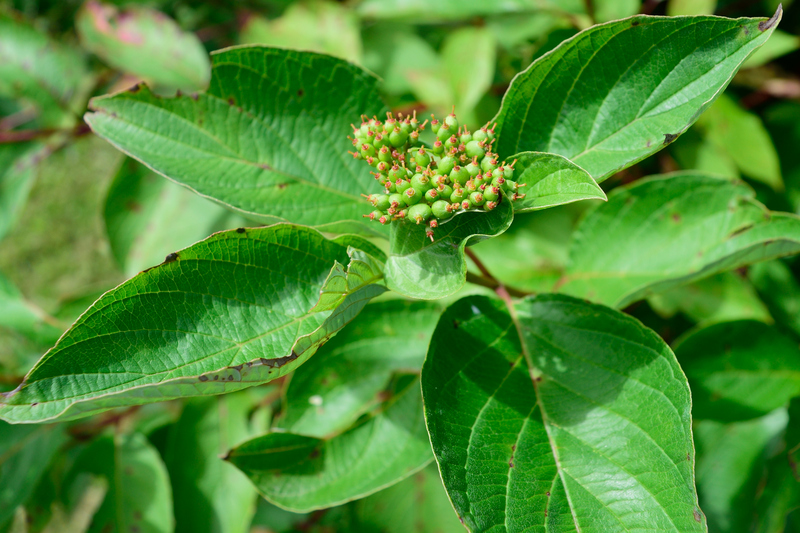Eco-friendly Soil Enrichment via Organic Waste
Posted on 27/08/2025
Eco-Friendly Soil Enrichment via Organic Waste: A Comprehensive Guide
The global movement toward sustainability has highlighted the need for more robust, natural, and environmentally-safe agricultural practices. One of the leading trends making waves in this space is eco-friendly soil enrichment with organic waste. This article explores the benefits, methodologies, and practical steps of using organic matter to boost soil fertility while promoting responsible waste management.

Understanding the Importance of Eco-Friendly Soil Improvement
Healthy soil is the foundation of thriving gardens, robust farms, and sustainable green spaces. Yet, in many urban and rural settings, soil quality is under threat from over-farming, erosion, and excessive use of chemical fertilizers. Eco-friendly soil enrichment offers a solution by recycling organic waste--such as kitchen scraps, yard trimmings, and agricultural by-products--back into the earth. This natural method boosts soil structure, nourishes plants, and greatly reduces environmental impact.
The Environmental Benefits of Organic Waste Soil Enrichment
- Reduces Landfill Waste: Composting household and agricultural waste keeps these materials out of landfill, cutting methane emissions and lessening landfill congestion.
- Lowers Greenhouse Gases: Decomposing organic matter in landfills releases methane, a potent greenhouse gas. Utilized properly, this matter enriches soil instead.
- Improves Soil Biodiversity: Organic matter fosters a dynamic ecosystem of bacteria, fungi, and earthworms, which enhance nutrient cycling and water retention.
- Decreases Chemical Runoff: Enriching soil naturally reduces the need for chemical fertilizers that often leach into waterways, protecting aquatic life.
Economic and Agricultural Advantages
- Cost Savings: Farmers, gardeners, and municipalities can reduce fertilizer and waste disposal costs by leveraging organic waste-based soil enrichment.
- Improved Crop Yields: Organically-rich soils support healthier plant growth, leading to increased crop productivity and nutritional value.
- Long-Term Soil Health: Continuous application of organic materials rejuvenates depleted soils, ensuring crop sustainability for future generations.
Types of Organic Waste Suitable for Soil Enrichment
Not all waste material is created equal. For safe, effective soil improvement with organic waste, it's vital to select the right types of materials. Below are some of the most widely accepted sources:
- Kitchen Waste: Vegetable peels, fruit scraps, eggshells, coffee grounds, and tea bags.
- Garden Trimmings: Grass clippings, leaves, small branches, and weeds (use caution with seed heads).
- Animal Manure: Aged manure from herbivorous animals, such as cows, sheep, horses, and poultry. Avoid pet and human waste due to pathogens.
- Crop Residues: Corn stalks, straw, and other agricultural by-products.
- Paper Products: Shredded, uncoated paper, cardboard, and sawdust (in moderation).
Organic Matters to Avoid
- Meat, fish, and dairy--attract pests and may harbor disease.
- Oily or greasy foods--these decompose slowly and can inhibit composting.
- Treated or painted wood--can introduce toxins to the soil.
- Diseased plants or weed seeds--may cause future pest or weed issues.
- Pet and human waste--risk of pathogens.
Key Methods for Eco-Conscious Soil Enrichment Using Organic Waste
There are several proven techniques for transforming organic matter into nourishing soil amendments. Here are some of the top methods for eco-friendly soil improvement:
1. Traditional Composting
The most popular form of organic waste recycling for soil health is composting. This aerobic process turns green (nitrogen-rich) and brown (carbon-rich) organic materials into rich, dark humus.
- Layer Materials: Alternate "greens" (kitchen scraps, grass clippings) and "browns" (leaves, straw, cardboard).
- Maintain Moisture: Keep the pile moist, but not soggy--similar to a wrung-out sponge.
- Turn the Pile: Aerate by turning every few weeks for faster decomposition and odor prevention.
- Ready-to-Use: Finished compost smells earthy and is crumbly. Spread around plants, dig into garden beds, or mix with potting soil.
2. Vermicomposting
This innovative approach uses red wiggler worms to break down organic matter. Vermicompost is exceptionally high in nutrients, moisture retention, and beneficial microbes.
- Use Worm Bins: Keep bins in a cool, dark space with bedding of shredded paper and food scraps.
- Add Scraps Regularly: Feed worms small amounts frequently rather than dumping large batches.
- Harvest Castings: Worm castings (excrement) make a potent, nutrient-packed soil conditioner for all types of plants.
3. Mulching with Organic Residue
Applying organic mulch like grass clippings, leaf mold, straw, or wood chips directly to soil surfaces smothers weeds, conserves moisture, and enriches soil as it breaks down.
- Spread Evenly: Aim for a 2- to 4-inch layer, keeping mulch away from plant stems to prevent rot.
- Natural Breakdown: Over the season, organic mulches decompose into the soil, gradually improving soil structure and feeding soil microbes.
4. Sheet Composting (Lasagna Gardening)
Also known as "lasagna gardening," this low-maintenance process involves layering organic materials directly onto garden beds.
- Build in Layers: Alternate between green and brown materials in flat beds.
- Top with Soil: Cover layers with a light layer of soil or finished compost to encourage microbial activity and decomposition.
- Plant Directly: In a few months, your bed will be ready for planting, boasting rich, friable soil.
5. Bokashi Fermentation
Bokashi is an anaerobic fermentation process using effective microorganisms to break down food waste--including meat and dairy--quickly into a pre-compost product safe for direct soil incorporation.
- Use Bokashi Bins: Layer food scraps with Bokashi bran. When bin is full, let it ferment for two weeks.
- Trench Compost: Bury the finished product in the garden. After a few weeks, it fully decomposes and supercharges the soil's biology.
Scientific Insights: How Organic Waste Enriches Soil
The magic of eco-friendly soil enrichment through organic matter is rooted in the science of decomposition and nutrient cycling. Here's what happens:
- Microbial Action: Bacteria, fungi, and actinomycetes break down complex organic compounds into simpler nutrients plants can absorb.
- Increased Humus: Decayed organic matter forms humus, which enhances soil texture, aeration, and water retention.
- Stable pH: Organic amendments buffer soil pH, making nutrients more accessible to plants.
- Soil Structure: As organic particles bind soil aggregates, structure and porosity improve, resulting in better drainage and root development.
- Disease Suppression: Healthy, microbe-rich soils naturally suppress certain soil-borne pathogens, boosting plant resilience.
Incorporating Eco-Friendly Organic Waste Enrichment: Step-by-Step Guide
To effectively improve soil with organic waste at home or on the farm, follow these practical steps:
- Assess Your Waste Stream: Identify what organic materials are available in your household, garden, or farm.
- Choose the Right Method: Consider space, volume, and time commitment; composting suits most households, while vermicomposting or sheet mulching may fit smaller areas.
- Collect and Prepare Materials: Chop large items to speed decomposition, and balance moist, nitrogen-rich "greens" with dry, carbon-rich "browns."
- Start Your Process: Whether composting, mulching, or Bokashi, begin adding materials regularly, maintaining correct moisture and aeration.
- Monitor Progress: Turn compost heaps, top up mulch, and check for odors--healthy systems are usually odorless.
- Apply to Soil: Mature compost, worm castings, mulch, or fermented Bokashi pre-compost should be incorporated into garden beds or spread around plants as needed.
- Repeat and Scale: Make this process a regular part of your seasonal garden care or farm management.
Overcoming Challenges in Organic Waste Soil Enrichment
While the benefits are enormous, integrating eco-friendly organic waste applications for soil enrichment may pose occasional challenges:
- Unpleasant Odors: Usually a sign of too much moisture, poor aeration, or excess nitrogen--balance the pile and turn it regularly.
- Pest Intrusion: Cover new food scraps with browns, avoid adding meat/dairy, and use rodent-proof bins if necessary.
- Slow Decomposition: Chopping and mixing materials, as well as providing adequate moisture, will hasten breakdown.
- Lack of Space: Vermicomposting or community composting initiatives offer space-saving alternatives for urban dwellers.
Case Studies: Success Stories from Around the World
Community Composting in San Francisco
San Francisco diverts over 80% of its waste from landfills, largely thanks to a robust curbside composting program. Households and businesses contribute food scraps and yard clippings, which are processed into compost used on local vineyards and farms--demonstrating how large-scale organic waste recycling can renew urban soils.
Vermicomposting in Kenyan Smallholdings
In Kenya, small-scale farmers have transformed low-fertility plots into lush, productive gardens through vermicomposting with organic household waste. The result is improved yields, less dependency on synthetic fertilizer, and reduced household waste accumulation.
Bokashi Bins in Urban Japan
Many Japanese households use compact Bokashi systems for kitchen waste. This method fits small apartments and allows residents to fertilize rooftop or balcony gardens, contributing to the city's green infrastructure with a minimal environmental footprint.

Tips for Maximizing Success with Eco-Friendly Soil Enrichment
- Balance Your Inputs: Too much of one kind of material can stunt the composting process. Aim for a balanced mix.
- Use Mature Compost: Only apply well-decomposed compost to your soil to avoid robbing plants of nitrogen or spreading plant diseases.
- Monitor pH and Salinity: Especially if using manure or food wastes, test your soil periodically.
- Engage the Community: Join or start a local composting collective to pool resources and share knowledge.
Conclusion: A Greener Future Through Organic Waste-Based Soil Enrichment
Eco-friendly soil enrichment via organic waste is more than a buzzword--it's a practical, accessible path to healthier gardens, restored farmland, and a cleaner environment. By embracing natural composting, vermicomposting, mulching, and fermentation techniques, we not only nourish our soil but also close the loop on waste, contribute to the fight against climate change, and lay the groundwork for more resilient, productive landscapes.
Whether you are a home gardener, a farmer, or a sustainability advocate, integrating organic waste-based soil enrichment into your management practices is a step toward a greener, more sustainable planet. Start today, and watch your soil--and your local ecosystem--thrive.
Latest Posts
Discover Vertical Gardening Innovations
Enjoy Hassle-Free Gardening with 5 Budget-Friendly Ideas
Building Resilience in Your Garden Against Severe Weather

